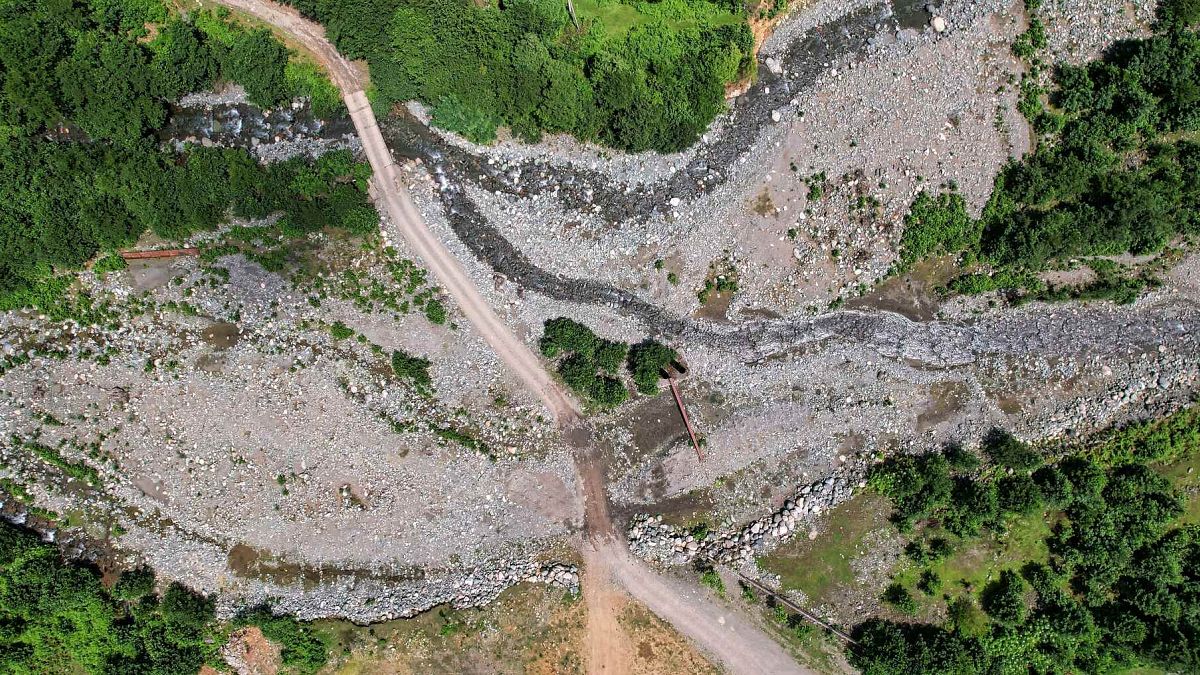

In recent months, there have been remarkable advances in technology and socio-economic developments around the globe. From the innovative strides in artificial intelligence to the growth in renewable energy adoption, these changes offer a glimpse into a future shaped by innovation, collaboration, and sustainability.
In the burgeoning realm of artificial intelligence, scientists are harnessing its power to predict and respond to natural disasters more efficiently. A significant leap in this area has been made with AI systems being trained to detect landslides rapidly. This initiative has borne fruit, with the neural networks successfully identifying over 7,000 landslides within three hours following a significant earthquake. Such swift identification promises to enhance disaster response, potentially saving lives and minimizing damage in vulnerable areas. This proactive application of AI reflects a deeper commitment to integrating cutting-edge technology in disaster management frameworks, underscoring a future where AI may significantly mitigate the impacts of natural calamities.
Meanwhile, Dubai has introduced a pioneering approach to AI transparency through the world’s first icon classification system for human-machine collaboration. This system is designed to clarify the extent of AI’s involvement in creating various outputs, whether it be text, art, or research. In an age where the line between human and algorithmic creation blurs, this initiative aims to foster trust and understanding, providing clarity about AI’s role in the creative and intellectual processes. This move not only sets a precedent for AI transparency but also aligns with global efforts to ensure responsible AI use across diverse sectors.
On another promising front, Australia is witnessing a surge in household battery installations, driven by a government-initiated subsidy program. This initiative has catalyzed a dramatic increase in applications, reflecting a broader trend toward sustainable energy solutions. With the potential to install 10,000MW of batteries within five years, this development represents a significant shift in the nation’s energy landscape, reducing reliance on traditional coal power. This energy transformation mirrors the rooftop solar boom from 15 years prior and underscores a growing commitment to renewable energy sources, marking a second revolution in household energy consumption.
Concurrent with these technological strides, societal shifts are also underway. Recent data from the Australian Bureau of Statistics indicates a historic low in divorce rates and longer-lasting marriages. This trend highlights a more deliberate approach to marriage, possibly influenced by lifestyle changes and evolving societal norms post-pandemic. The data suggests that individuals are entering marriages at a more mature age, with men typically marrying at 32.8 years and women at 31.2 years. These figures reflect a broader societal shift toward stability and intentional partnerships.
In the economic sphere, Rachel Reeves, a prominent political figure, is actively seeking new economic advisers as she prepares for an impending autumn budget. This search comes as her current chief economic adviser, John Van Reenen, steps back to pursue academia. Van Reenen’s expertise in productivity has been pivotal in shaping economic strategies, such as Labour’s growth plans. His reduced involvement consequently necessitates the recruitment of top-tier experts to navigate the economic challenges and opportunities in the coming months. Such strategic counsel is crucial in crafting policies that align with the evolving economic climate, bolstered by inputs from distinguished academicians.
These diverse advancements and changes, spanning technology, energy, societal norms, and economic planning, illustrate a world progressively adapting to new realities. They reinforce a narrative of collaboration, intentional innovation, and a steadfast commitment to sustainable progress and social well-being.
Source: {link}
